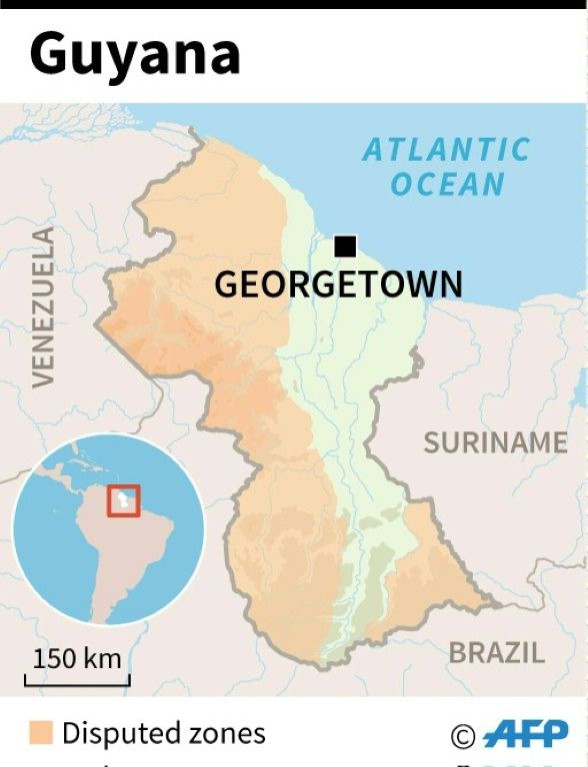Tensions Rise As Guyana Awaits Election Result
Guyana's two main political parties were claiming victory on Wednesday with tensions rising as the oil-rich, cash-poor South American nation awaits the results of its general election.
The party of President David Granger is defending a razor-thin parliamentary majority, amid fears that an opposition victory may lead to unrest in the capital, Georgetown.

The Guyanese political landscape is riven by ethnic divisions, with the ruling Partnership for National Unity and Alliance for Change (ANPU-AFC) supported by the Afro-Guyanese community.
The opposition People's Progressive Party (PPP), which is backed by the Indo-Guyanese population, has claimed it has an unassailable lead while APNU-AFC said it was readying a victory party.
Observation missions from the Carter Center, United States, Britain and the European Union have asked the two major parties to accept the results peacefully.

"We implore all Guyanese, especially our supporters, to continue to remain calm and to go about your daily activities in a spirit of peace and optimism," APNU-AFC said on Tuesday.
"All of our internal projections are positive and indicate that we will be returned to government for a second term to continue the work of building and developing Guyana."
The busiest neighborhoods of Georgetown, an APNU-AFC stronghold, were practically deserted for second day as many stores closed while others opened but with their windows shuttered.

Parents kept their children from school and there was an obvious slowdown in business activity, leaving locals nervous and frustrated.
"It impacts on me a great lot because I have bills to pay and I have a mortgage to pay and it's difficult," taxi driver Julian Wills told AFP.
"All we need is the result. Whoever has won, we need the country to go back to normal."

Business organizations and the PPP have urged the Guyana Elections Commission to declare the results and ease tensions in the former British colony.
But collecting from remote locations in territory dominated by forests, mountains and rivers can be slow and full results are not expected until Friday.
"When it takes long for these results to be released, it creates a kind of unease," PPP executive member Frank Anthony told AFP.
Guyana -- bordered by Brazil, Venezuela and Suriname -- has a population of around 750,000, though lawmakers believe a third or more have emigrated to North America and the Caribbean.
The 65 members of the National Assembly are elected using closed list proportional representation, with voters selecting parties rather than individual candidates.
The presidential candidate of the party or coalition that emerges with the most seats -- former housing minister Irfaan Ali is the PPP's pick -- becomes president.
The Guyanese election is being watched more closely than might ordinarily be the case because the eventual winner will be in control of a coming oil boom that is set to transform Guyana.
In December ExxonMobil began commercial exploitation of a huge 2016 oil discovery off the coast and production is expected to grow from 52,000 barrels per day to 750,000 from 2025.
The International Monetary Fund expects the country's economy to record the biggest growth worldwide this year, a staggering 85 percent.
"The gross domestic product per capita is going to grow substantially and, well-invested, these resources can bring solid social benefits, and solid economic growth for Guyana," Venezuelan economist Jose Toro Hardy, an expert in oil and gas, told AFP.
© Copyright AFP 2024. All rights reserved.




















